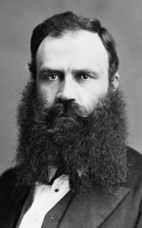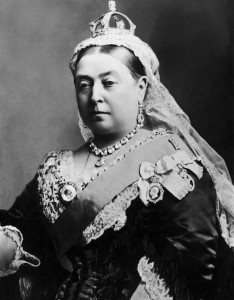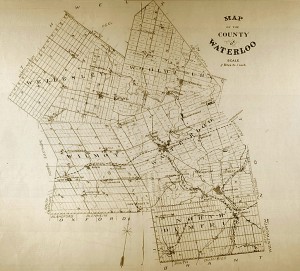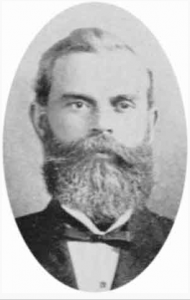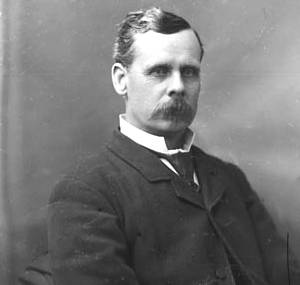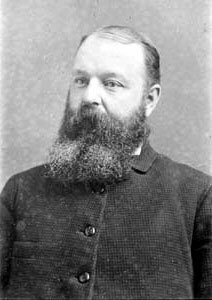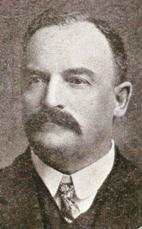Isaac Erb Bowman (originally Baumann) was born in St. Jacobs on 17 August, 1832, and served as the first Member of Parliament for the constituency of Waterloo North, and belonged to the Liberal Party. Before becoming a Member of Parliament, he worked as a school teacher, in a tannery (which he later came to own), and was also a clerk, a treasurer and a postmaster for the village of St. Jacobs, and also represented the district in the pre-Confederation Canadian Parliament. He also acted as the president of the Ontario Mutual Life Insurance Company from its foundation in 1871. He held the position of Member of Parliament for Waterloo North from Confederation in 1867, until the 1878 election, when he lost to German-born Hugo Kranz. He was then re-elected in 1887, and defeated Kranz’s Conservatives again in the 1891 election. During his lifetime, Bowman represented the people of Waterloo North for over 20 years before dying in 1897.
Liberal Isaac Erb Bowman (originally Baumann) was born in St. Jacobs on 17 August 1832. Bowman served as the first Member of Parliament for the constituency of Waterloo North and belonged to the Liberal Party. Before becoming a Member of Parliament, he worked as a schoolteacher, in a tannery (which he later came to own), and was also a clerk, a treasurer and a postmaster for the village of St. Jacobs. He also represented the district in the pre-Confederation Canadian Parliament. Bowman also acted as the president of the Ontario Mutual Life Insurance Company from its foundation in 1871. He held the position of Member of Parliament for Waterloo North from Confederation in 1867 until 1878 when he lost to German-born Hugo Kranz. He was then re-elected in 1887, and defeated Kranz’s Conservatives again in the 1891 election. During his lifetime, Bowman represented the people of Waterloo North for over 20 years before dying in 1897. Bowman is an example of a prominent figure who was able to serve the region in parliament because of his well-established credibility with the region’s voters.
(Gemmill, J.A. ed. The Canadian parliamentary companion, 1887. Ottawa : J. Durie, 1887; Maclean Rose, G. ed. A Cyclopæedia of Canadian biography : being chiefly men of the time : a collection of persons distinguished in professional and political life : leaders in the commerce and industry of Canada, and successful pioneers. Toronto: Rose Pub. Co., 1886; PARLINFO, “Bowman, Joseph Erb.” Accessed April 20, 2014. http://www.parl.gc.ca/)
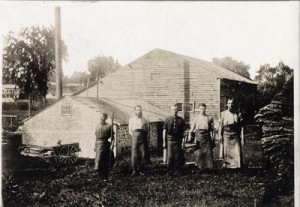
Isaac Bowman, and Bowman Tannery
